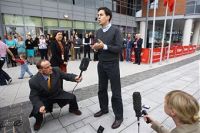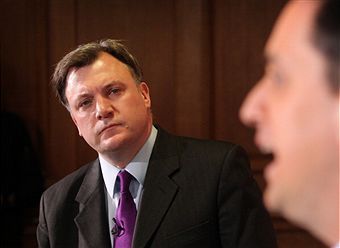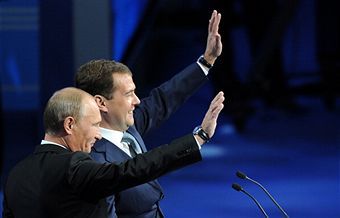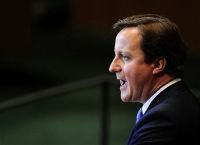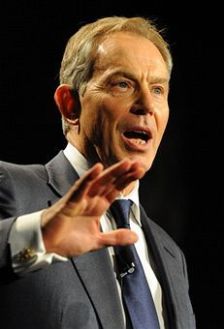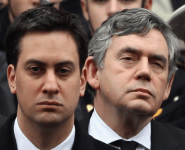For one night only, David Miliband returns
David Miliband was studiously loyal to his brother in his one speaking appearance at Labour conference. He told Movement for Change, the community organising group that he founded, that ‘Ed deserves huge praise’, that ‘Ed has led with purpose and conviction and that ‘we’ll all here because we want to put Ed into Downing Street’ But the brother over the water did come with three warning for Labour. The first was that ‘if Labour becomes a sectional party, we’ll never be elected to government.’ The second was that there’s ‘never been more distrust of the state across the industrialised world’ so if Labour becomes ‘a big state party, we’ll never









